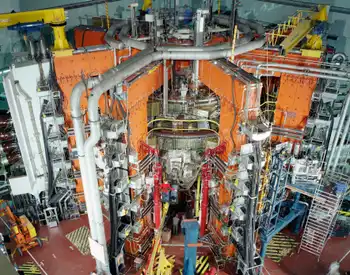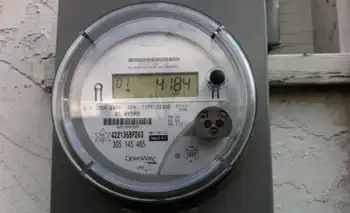Point Lepreau undergoes safety upgrades
Wade Parker, the station director at Point Lepreau, said he was more than happy to comply with a request from the Canadian Nuclear Safety Commission to address whether there are any significant gaps in plant designs.
"What our regulator has asked us — and duly so, as they should under their due diligence — they've asked us to review and see where we are," he said.
The Canadian Nuclear Safety Commission has established a task force to evaluate the operational, technical and regulatory implications of the nuclear disaster in Japan in relation to Canadian power plants.
The task force will recommend, if appropriate, potential changes to regulatory requirements, inspection programs and policies for existing reactors and potential new nuclear power plants.
Canada has seven nuclear generating stations located at five sites in New Brunswick, Ontario and Quebec.
Point Lepreau, the only nuclear power plant in the Atlantic provinces, has been shut down for a major refit since April 2008.
Parker said he and his team decided — before Japan's deadly 9.0-magnitude earthquake and tsunami on March 11 — to install several new systems as part of Point Lepreau's ongoing refurbishment.
"If we look at world events, things that happened over the last one or two months, we didn't make changes based on that one or two months," he said.
"Installing those pieces of equipment [was] very timely, because those changes will be there prior to restarting the station which makes it even better, makes it even safer."
The new systems include a new ventilation system and equipment to help prevent hydrogen explosions. There is also an emergency water line that is capable of keeping the reactors cool without electricity.
"We can open the valves and put water right in and they were designed specifically for such a scenario such as a severe station blackout," said Paul Thompson, the manager of regulatory affairs and security for Point Lepreau.
Thompson said the earthquake and subsequent tsunami that struck northeastern Japan was something staff would "never expect" to deal with at Point Lepreau, because of low seismic activity in the area and the fact that the station was built 14 metres above sea level.
The completion of the $1.4-billion Point Lepreau refurbishment project, which has been delayed several times, is now slated for the fall of 2012.
Related News

Wind Leading Power
LONDON - Wind turbines have generated more electricity than gas for the first time in the UK.
In the first three months of this year a third of the country's electricity came from wind farms, research from Imperial College London has shown.
National Grid has also confirmed that April saw a record period of solar energy generation.
By 2035 the UK aims for all of its electricity to have net zero emissions.
"There are still many hurdles to reaching a completely fossil fuel-free grid, but wind out-supplying gas for the first time is a genuine milestone event," said Iain Staffell, energy researcher at Imperial…





